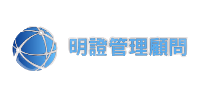Copyright © 2024 Minjeng Management Consulting

ISO 9001 Quality Management System
is an effective tool for business success
What is ISO9001?
ISO 9001 is an international standard for quality management systems
Why do businesses need ISO 9001?
A systematic framework integrates all aspects of a company’s resources, starting from the business philosophy of meeting customer needs and enhancing customer value. It streamlines and improves management efficiency, prioritizes addressing issues related to operations, management, supply chain, and customer experiences. Based on a high-level structure, it incorporates risk management thinking across these aspects, focusing on analyzing customers’ needs, preferences, and behaviors. Emphasis is placed on innovating new product development and marketing strategies to dynamically adapt to all the challenges faced by the enterprise.
What are the benefits of obtaining ISO 9001 certification for businesses?
By employing the ISO 9001 framework to systematize and strengthen organizational quality management, enterprises effectively boost their economic benefits and customer retention. Obtain ISO 9001 certification signifies that a company adheres to international standards in quality management, attaining globally recognized quality certification. This significantly enhances customer trust, effectively eliminates trade barriers, and broadens the company’s reputation for quality in both products and services, also enhancing visibility to customers.
Moreover, ISO 9001 continually updates its clauses and interpretations to keep pace with evolving business environments, helping companies maintain a competitive edge. Under existing quality management practices, the introduction of new system tools enables comprehensive risk and opportunity assessments. This strengthens technical capabilities and the overall perfection of business management, thus boosting competitive capability.
Q&A
FAQ
01.
What types of industries need ISO 9001?
ISO 9001 is primarily essential for the manufacturing industry, given that producing a product involves many processes. This system helps manage quality. However, in a broader sense, the term “product” encompasses a lot, including services, which can also be considered products. This system is well-suited for customers or organizations that have specific quality requirements.
02.
At what company size does implementing ISO 9001 become economically beneficial?
Companies with fewer than 10 people can obtain ISO 9001 certification, and so can those with 30,000 people. This system recognizes whether the broad or specific product quality meets international standards or is internationally recognized.
03.
Do startups also need ISO 9001?
Of course, a comprehensive system tool is necessary. It effectively addresses the shortcomings faced by startups, such as establishing efficient management strategies, implementing robust performance metrics, setting up document systems, and ensuring the quality of actual production processes with suppliers and customers. Once the quality of manufacturing or services reaches a certain standard and gains international recognition, it not only enhances the visibility of the business but also provides a rapid and scientific comprehensive enhancement internally.

What Is TQM?
Total Quality Management (TQM) primarily focuses on customer orientation, satisfying both internal and external customer requirements based on a core philosophy of continuous improvement. It involves everyone’s participation in ongoing enhancements to achieve comprehensive quality management, using various specific management techniques such as the QC7 tools, FMEA, Balanced Scorecard (BSC), benchmarking, Lean Six Sigma, etc., to meet business objectives.
TQM emphasizes a quality-centered company culture through autonomous, company-wide participation in activities aimed at improvement and optimization. It lacks a complete framework, resembling a customer-oriented approach and a core starting point for continuous improvement that covers all departments of a company.
Unlike ISO 9001, which has a complete set of specifications and a framework, TQM stresses a philosophy that utilizes tools for achievement. This spirit of TQM can be integrated within the ISO 9001 framework, serving as the backbone and culture of a company, with specific tool usage being a concrete action as part of TQM’s implementation methods and mechanisms.
TQM originated in the 1980s with the principles and practices of American quality gurus such as Deming, Juran, and Feigenbaum. When implementing ISO 9001, businesses can merge the spirit of TQM and its tools to truly meet customer needs, exceed expectations, and comprehensively enhance the organizational structure and systematization of the company.
Corporate culture influences the direction of operational management and is an effective means to achieve strategic goals. A systematic framework will assist in fostering harmony, growth, and profitability within a company.
Minjeng Management Consulting

